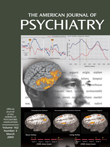To the Editor: Many psychiatrists are unaware that the Mini-Mental State Examination (MMSE) is protected by copyright. Its 20 questions were published in 1975 in the
Journal of Psychiatric Research (1). This journal’s copyright notice forbids unauthorized reproduction of the examination. However, clinical experience suggests that unauthorized copies are routinely distributed to trainees and staff. We recently became aware of this while preparing an article for publication.
The notion of granting authors exclusive rights to their work goes back to the 1700s, when the United States and the United Kingdom enacted their first copyright laws, largely covering maps, charts, and books
(2). Today, copyright protection is afforded by most countries
(3): a Chinese court ordered a Beijing-based school to pay U.S. publishers $1.2 million for copying the Test of English as a Foreign Language and the Graduate Management Admission Test
(4).
Much has happened since 1975. The MMSE has become the most widely accepted test of cognitive status, the Journal of Psychiatric Research has been purchased by Elsevier, and a corporation has been formed to license MMSE commercial rights: MiniMental LLC of Massachusetts. MiniMental offers examination forms, guides, and software through Psychological Assessment Resources, Inc., of Florida for about $1 per test. (Hardly exorbitant: $1 per test represents less than 1% of the cost of a psychiatric evaluation and, probably, less than 1% of the cost of a day of psychiatric training.)
Computer professionals worry about stealth patents—patents held quietly until there is a market to control. Has psychiatry fallen afoul of a stealth copyright? For years, we taught trainees to use a copyrighted examination. Must they purchase examinations from Psychological Assessment Resources in order to conduct interviews without risk of a lawsuit?
Some might argue that this copyright was lost through lack of enforcement. Are MiniMental and Psychological Assessment Resources unaware that psychiatric centers have freely reproduced MMSE forms for years? Internet searches for “MMSE” yield many sites, even complete forms without mention of copyright. This makes for an interesting legal argument but one that is not certain to prevail in court.
Computer programmers established the Open Source Initiative to avoid copyright battles. Software contributed to Open Source Initiative is free for copying, with an understanding that refinements will be contributed back
(5). Psychiatrists have
assumed this model for years, openly publishing their techniques and technical improvements.
Psychiatrists need tests such as the MMSE and, like psychologists
(6), should respect intellectual property rights. For teaching, we need consensus—teach any effective interview technique, even a commercial one, or teach only
open, freely available techniques.

